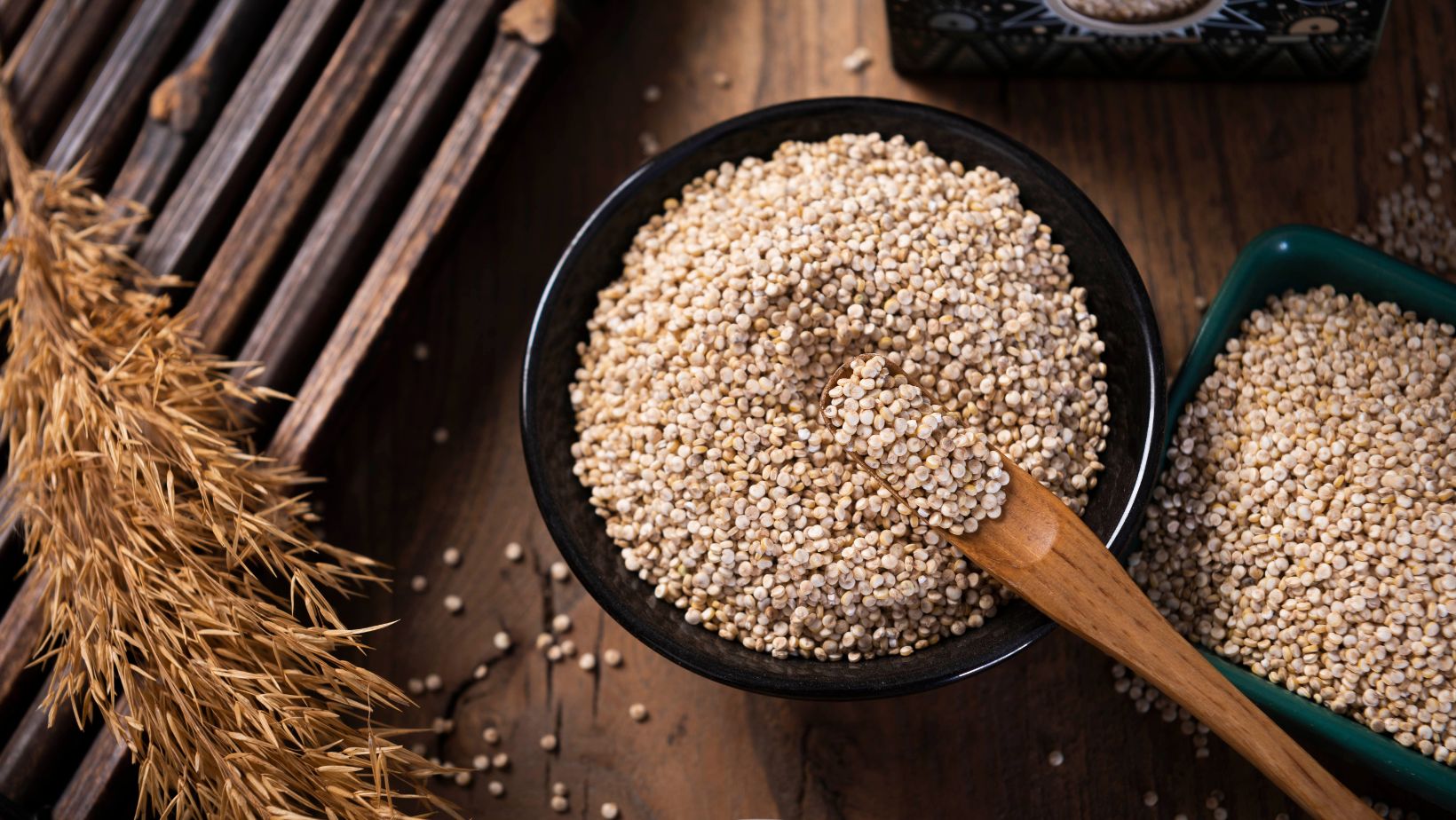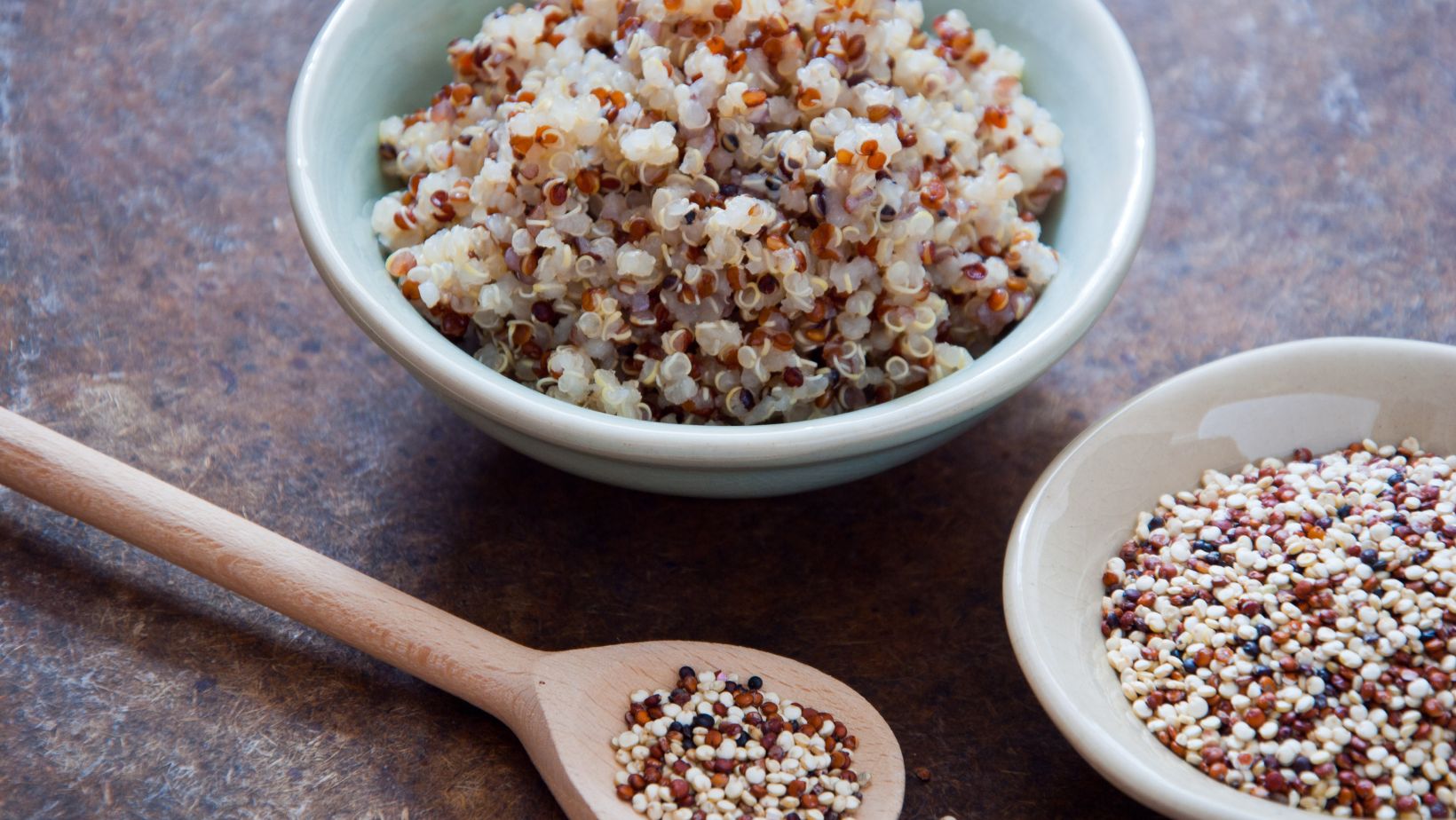
Are you following a keto diet and wondering if quinoa is compatible with your low-carb lifestyle? Look no further! In this article, I’ll shed light on the potential benefits of incorporating quinoa into a keto diet.
Quinoa, often hailed as a superfood, is a nutrient-dense grain-like seed that’s packed with protein, fiber, and essential vitamins and minerals. While it does contain carbohydrates, the good news is that it also boasts a relatively low glycemic index compared to other grains. This means that when consumed in moderation, quinoa can be a suitable option for those following a ketogenic eating plan.
One of the main challenges of the keto diet is finding sources of complex carbohydrates that won’t kick you out of ketosis. Quinoa could potentially be an excellent solution since it provides slow-releasing energy without causing significant spikes in blood sugar levels. Additionally, its high fiber content can promote feelings of satiety and aid in digestion.
However, it’s important to note that portion control plays a crucial role here. While quinoa may have some favorable qualities for keto dieters, consuming excessive amounts can still hinder your progress by exceeding your daily carbohydrate limit. So make sure to fit quinoa into your overall macronutrient goals while enjoying its unique taste and nutritional profile.
Intrigued about how to incorporate quinoa effectively into your keto meals? Stay tuned as we delve deeper into specific recipes and strategies to optimize your ketogenic experience with this versatile pseudo-grain!
Quinoa for Keto
When it comes to following a keto diet, finding suitable grain alternatives can be quite challenging. However, quinoa stands out as a nutritious superfood that can fit well into your low-carb lifestyle. Despite technically being a seed, quinoa is often referred to as a pseudo-grain due to its similar culinary uses and nutritional profile.
One of the main advantages of incorporating quinoa into your keto diet is its impressive nutrient content. It is packed with essential vitamins and minerals such as magnesium, iron, zinc, and B-vitamins. Additionally, quinoa provides all nine essential amino acids, making it a complete protein source – something that is often lacking in other grains or plant-based foods.
The Role of Quinoa in a Keto Diet
Quinoa’s unique nutritional composition makes it an excellent addition to the keto diet. While the traditional ketogenic approach emphasizes high fat intake and limited carbohydrates, moderate amounts of certain carbs can still be incorporated while maintaining ketosis. This is where quinoa shines.
Understanding the Nutritional Profile of Quinoa
When it comes to following a keto diet, understanding the nutritional profile of different foods is crucial. In this section, I’ll delve into the specifics of quinoa and its suitability for a keto lifestyle.
- Carbohydrates: Quinoa is often praised for being a nutritious grain alternative, but it’s important to note that it contains a significant amount of carbohydrates. While 1 cup (185 grams) of cooked quinoa provides around 39 grams of total carbs, it also offers approximately 5 grams of dietary fiber. This means that the net carb count is about 34 grams per cup.
- Protein: One key aspect that makes quinoa stand out among other grains is its protein content. It’s considered a complete protein source as it contains all nine essential amino acids required by our bodies. In fact, 1 cup of cooked quinoa delivers approximately 8 grams of protein.
- Fat Content: Although quinoa does contain some fat, the overall amount is relatively low compared to its carbohydrate and protein content. About 1 cup of cooked quinoa provides roughly 4 grams of fat.
- Micronutrients: Quinoa boasts an impressive array of micronutrients such as manganese, magnesium, phosphorus, and folate among others. These nutrients play vital roles in various bodily functions and contribute to overall health and wellbeing.
While quinoa does offer several nutritional benefits, its carbohydrate content may make it challenging to fit into a strict ketogenic diet plan where carb intake needs to be minimized significantly.
In conclusion:
- Quinoa contains around 34 grams* (*approximate value) net carbs per cup.
- It provides about 8 grams* (*approximate value)of protein per cup.
- The fat content in quinoa is relatively low compared to its carbohydrate and protein content.
- Quinoa is rich in essential micronutrients like manganese, magnesium, phosphorus, and folate.
Considering the higher carb content of quinoa, it may not be the most suitable choice for those strictly following a keto diet. However, individuals following a more flexible or modified approach to keto may still find room for incorporating quinoa in their meals while paying attention to portion sizes and overall macronutrient balance.

